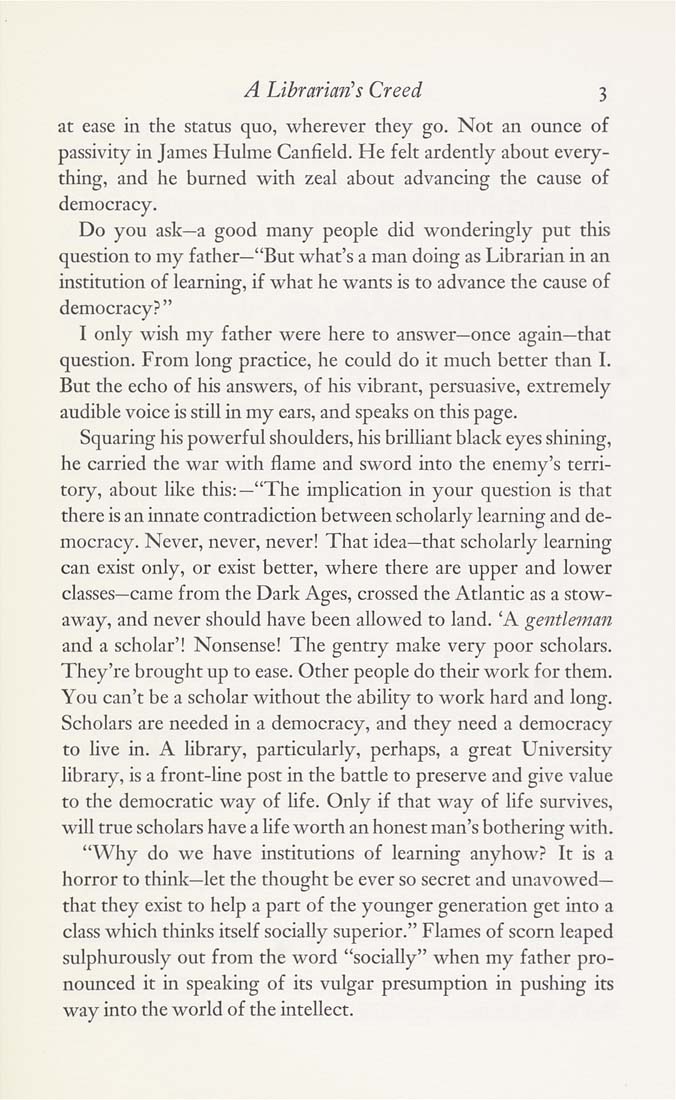Columbia Library columns (v.2(1952Nov-1953May))
(New York : Friends of the Columbia Libraries. )
|
||
|
|
|
|
| v.2,no.1(1952:Nov): Page 3 |

A Librarian's Creed 3 at ease in the status quo, wherever they go. Not an ounce of passivity in James Hulme Canfield. He felt ardently about every¬ thing, and he burned with zeal about advancing the cause of democracy. Do you ask—a good many people did wonderingly put this question to my father—"But what's a man doing as Librarian in an institution of learning, if what he wants is to advance the cause of democracy?" I only wish my father were here to answer—once again—that question. From long practice, he could do it much better than I. But the echo of his answers, of his vibrant, persuasive, extremely audible voice is still in my ears, and speaks on this page. Squaring his powerful shoulders, his brilliant black eyes shining, he carried the war with flame and sword into the enemy's terri¬ tory, about like this:—"The implication in your question is that there is an innate contradiction between scholarly learning and de¬ mocracy. Never, never, never! That idea—that scholarly learning can exist only, or exist better, where there are upper and lower classes—came from the Dark Ages, crossed the Atlantic as a stow¬ away, and never should have been allowed to land. 'A gentletnan and a scholar'! Nonsense! The gentry make very poor scholars. They're brought up to ease. Other people do their work for them. You can't be a scholar without the ability to work hard and long. Scholars are needed in a democracy, and they need a democracy to live in. A library, particularly, perhaps, a great University library, is a front-line post in the battle to preserve and give value to the democratic way of life. Only if that way of life survives, will true scholars have a life worth an honest man's bothering with. "Why do we have institutions of learning anyhow? It is a horror to think—let the thought be ever so secret and unavowed— that they exist to help a part of the younger generation get into a class which thinks itself socially superior." Flames of scorn leaped sulphurously out from the word "socially" when my father pro¬ nounced it in speaking of its vulgar presumption in pushing its way into the world of the intellect. |
| v.2,no.1(1952:Nov): Page 3 |







